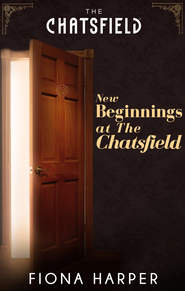По всем вопросам обращайтесь на: info@litportal.ru
(©) 2003-2024.
✖
Take a Chance on Me: Blind-Date Marriage / Saying Yes to the Millionaire
Автор
Год написания книги
2018
Настройки чтения
Размер шрифта
Высота строк
Поля
Serena gasped. ‘But some of them are kids! Barely old enough to be out of primary school!’
Cassie shrugged. ‘They use the local kids as look-outs and runners. In a couple of years’ time, those same kids will be part of the network, earning them even more cash when they sell to their school-friends.’
She stared at Cassie in disbelief. ‘I don’t understand why they get mixed up with people like that in the first place.’
Cassie dragged her out through the front door and turned her to face the car park nearby. ‘See that big black BMW parked over there?’
She nodded.
‘It’s his—the dealer’s. He’s well-known round here. The kids in this place grow up with next to nothing. They see this guy, with his designer clothes, thick gold jewellery and flash cars, and they want it too. You can’t blame them, really. They don’t want to be stuck here for the rest of their lives, on the dole or in dead-end jobs like their parents. Who wants to wipe greasy tables or pick up rubbish for a living? Mr Big up there is the only role-model for success they see at close range.’
‘That’s so sad.’
‘Exactly,’ said Cassie, slapping a cloth into her hand. ‘That’s why this project is so important. It might not be much, but it’s a start. We can show them there’s something better to do with their time, that they have other options.’
Serena’s face settled into a mask of determination. ‘Let’s go, then! What do you want me to do next?’
Cassie grinned and handed her a huge bottle of cream cleaner. ‘See that little kitchen over there …?’
Serena had an epiphany while she scrubbed.
Her childhood might not have been perfect, but it could have been a hell of a lot worse! So she’d lost her mother. At least she’d had twelve good years before her mum died. Some of the kids on this estate had probably never even met their fathers.
She scraped frantically at a bit of burnt-on grime on the electric hob. She’d spent a lot of her life feeling rather sorry for herself, when really she had so much to be thankful for. The lyrics from some of Steve’s ‘happy-clappy’ songs suddenly made a lot more sense.
The little kitchenette gleamed. Serena stood back with her hands on her hips and surveyed her work, glad she’d forced herself out of bed that morning. Okay, glad Cassie had forced her out of bed that morning. Helping Cass had given her an unexpected dose of perspective.
She wiped her forehead with the glove-free part of her arm. ‘I need some fresh air,’ she called.
Cassie appeared, with a full dustpan and brush in her hand. The dust in her hair had turned it a rather dirty shade of pink. ‘I need something cold and fizzy. Do you want to nip out to the newsagents and get us something to drink?’
Serena peeled her gloves off and left them on the counter. ‘Where is it?’
‘Follow the path to the left, past the nearest block of flats. When you come to the end, go left again and you should see a row of shops.’
Serena nodded, checked her jeans pocket for change, then walked out into the bright January afternoon.
She had been walking for less than a minute when she became aware of someone behind her. Not too close, but close enough, keeping pace almost. She slowed down a little to give whoever it was a chance to overtake. The footsteps matched her own.
Her heart began to thump even before she picked up speed again.
This was ridiculous! It was probably some old lady on her way to the bingo. But if that were the case why was she scared to turn round and take a look?
She wanted to break into a jog. Instead, she tightened her stomach muscles and glanced quickly over her shoulder, hoping to be rewarded by a nod from an old dear in a tweed coat.
It was a man.
More than that was hard to say. His woollen hat was pulled down over his ears and a scarf was knotted round his neck, covering his chin and mouth. He’d burrowed even further into the turned-up collar of his scruffy grey overcoat when she’d sneaked a look at him.
He wasn’t doing anything threatening, wasn’t getting any closer, but it just didn’t feel right. Her palms itched and cold air sliced her throat as she drew it into her lungs.
They were almost in the shadow of the tower. The path ran right next to the block of flats, under the overhanging balconies of the upper floors. It looked as if it was designed to be a shelter for the entrance, but it felt as if she would be hemmed in after the open space of the walkway. The only alternative was to turn and face him, and she certainly didn’t want to do that!
Suddenly she was running towards twenty storeys of concrete and dirty glass. She shoved one of the heavy double doors open and jabbed a finger on the lift button, taking care to breathe through her mouth. The foyer reeked like a public toilet.
She glanced outside, through the glass-panelled doors. He was getting closer, but it was impossible to tell if he was just going to walk past or follow her inside.
The lift machinery was ominously silent. No distant dings of the lift on upper floors. No lights on the display. She pressed the button one last time, then darted up the staircase without waiting for a result. The sound of her footsteps bounced off the walls in the confined space. She counted off thirty steps then stopped, a foot poised on the next step so she was ready to set off again.
Nothing. No sound behind her. It would have been hard to climb those stairs without making a noise. She slouched against the wall and caught her breath.
What to do now? She didn’t want to go back downstairs just yet and risk running into the grey overcoat. She glanced up the stairs.
Fourteenth floor, Jake had said.
Her feet set up a rhythm on the stairs again, slower this time.
Each landing looked like the last. The floor numbers on the walls were often obscured by neon spray paint. Nothing artistic, though. Just name tags and obscene phrases. Finally, she stood beside the plaque reading ‘14’ and gulped oxygen into her lungs, her calf muscles screaming.
Her destination was a bit of an anticlimax. Somehow she’d thought she would have a sense of arrival, that something in the narrow corridor would shout, Jake was here! But all she saw was a row of identical blue doors. At the end of the corridor was a large window. She walked up to it and looked out on Jake’s world.
The greyness seemed to spread in every direction from the base of the block of flats for miles and miles. The oasis of Greenwich Park was nowhere to be seen. She must be looking in the wrong direction.
In her imagination, she tried to picture Jake as he would have been fifteen years ago—baggy jeans with rips and a baseball cap. Would his dark hair have been longer and shaggier, or would it have been a crew cut? The image wouldn’t come. She could only see him in crisp shirts and designer suits, his hair neat, never a tuft sticking up. She didn’t know the Jake of Ellwood Green at all.
But she understood her Jake better—the need to succeed at his career, his love of fine things and first-class service. It was a world away from the scene she looked down upon now. He’d talked about how he’d wanted to escape, and he’d done it. She admired him for that. It was a testament to his drive and determination that his BMW was parked in the underground garage of his office, and not in the car park downstairs as he waited for the next knock on the front door.
She walked back to the stairwell and started her descent. Once at ground level, she stayed well back from the doors and searched for any sign of a grey coat. When she was sure it was safe, she eased the door open and peeked out, grateful for the relief from the acrid stench of the foyer.
No sign. She let out a large breath and waited, half-in, half-out the door, for another minute before setting off again.
It wasn’t long before she spotted the small parade of shops. The newsagents sat between a boarded-up unit and a launderette.
She picked a couple of bottles out of the cold cabinet inside and took them to the counter. A pair of chatting teenage girls hushed and watched her hand over the coins to the shopkeeper. She stuffed her change into her back pocket and scurried out of the shop.
Jake’s roots were here. It was his world. And she clearly didn’t belong.
Jake rested his elbows on the bar of the trolley and scanned the luggage carousel for his cases. A willowy blonde woman on the other side of the conveyor belt made eye contact. Normally he would have stood up and smiled, but instead he picked a case to watch and pretended he hadn’t seen her.
London was a big city, but a homing beacon was calling out to him. His mind was tuned to wherever she
Вы ознакомились с фрагментом книги.
Приобретайте полный текст книги у нашего партнера:
Приобретайте полный текст книги у нашего партнера:











